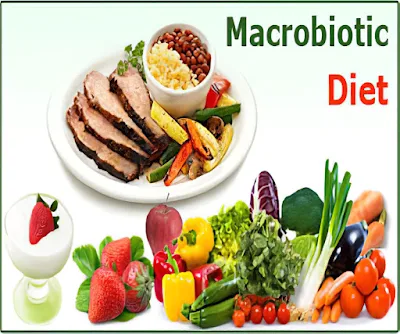Macrobiotic Diet
The
word macrobiotic comes from the Greek words macro, which means large or long,
and bio, which means life.
Summary
- The macrobiotic diet was developed by a Japanese philospher called George Ohsawa.
- It is a strict diet with rules about what you eat and how you cook your food.
- There is no scientific evidence that this diet can prevent or cure cancer.
What is a macrobiotic diet?
The
macrobiotic diet was developed in the 1920s by a Japanese philosopher called
George Ohsawa. He believed that by eating a simple, healthy diet, we could live
in harmony with nature. He also believed that his macrobiotic diet could cure
cancer and other serious illnesses.
The
macrobiotic diet aims to avoid foods containing toxins. Many people follow a
completely vegan diet with no dairy products or meats. But some people eat
small amounts of organic fish and meat.
Why
people with cancer use macrobiotic diets
Some
people with cancer use macrobiotic diets as a complementary therapy. They think
that changing their diet and lifestyle might help them to feel better and more
positive. A macrobiotic diet might do this, but it can also have harmful
effects.
Some
people think living a macrobiotic lifestyle may help them to fight their cancer
and lead to a cure.
What a macrobiotic lifestyle involves
There
are different types of macrobiotic lifestyle that involve more than just diet.
To follow a macrobiotic diet properly, you need to be strict about what you eat
and how you cook your food.
A
macrobiotic practitioner plans your diet by taking into consideration your age,
sex, where you live and how much exercise you do.
Generally,
the diet is made up of:
- organic whole grains such as brown rice, barley, oats and buckwheat (half your food intake)
- locally grown, organic fruits and vegetables (up to a quarter of your food intake)
- soups made with vegetables, seaweed, beans, chick peas, lentils and fermented soy (miso) (up to a quarter of your food intake)
You should only eat when you are hungry. And you should chew your food for a
long time until it becomes a liquid in your mouth. The belief is that this
helps you digest it more easily.
You
shouldn’t have any vitamin or mineral supplements. You cannot eat processed
foods or foods with artificial colours, flavours or preservatives.
You
should also prepare and cook your food in a certain way.
- Cook and store all your food in pots and utensils made of wood, glass, stainless steel or china (ceramics).
- Avoid microwave ovens or cooking with electricity.
- Prepare your food in a calm and peaceful environment.
- Always purify the water you drink or cook with.
As
well as teaching you about the macrobiotic diet, a practitioner may also offer:
- advice on healthy exercise
- home remedies that aim to heal your body
- cooking clases
- macrobiotic counselling sessions
- meditation










0 Comments